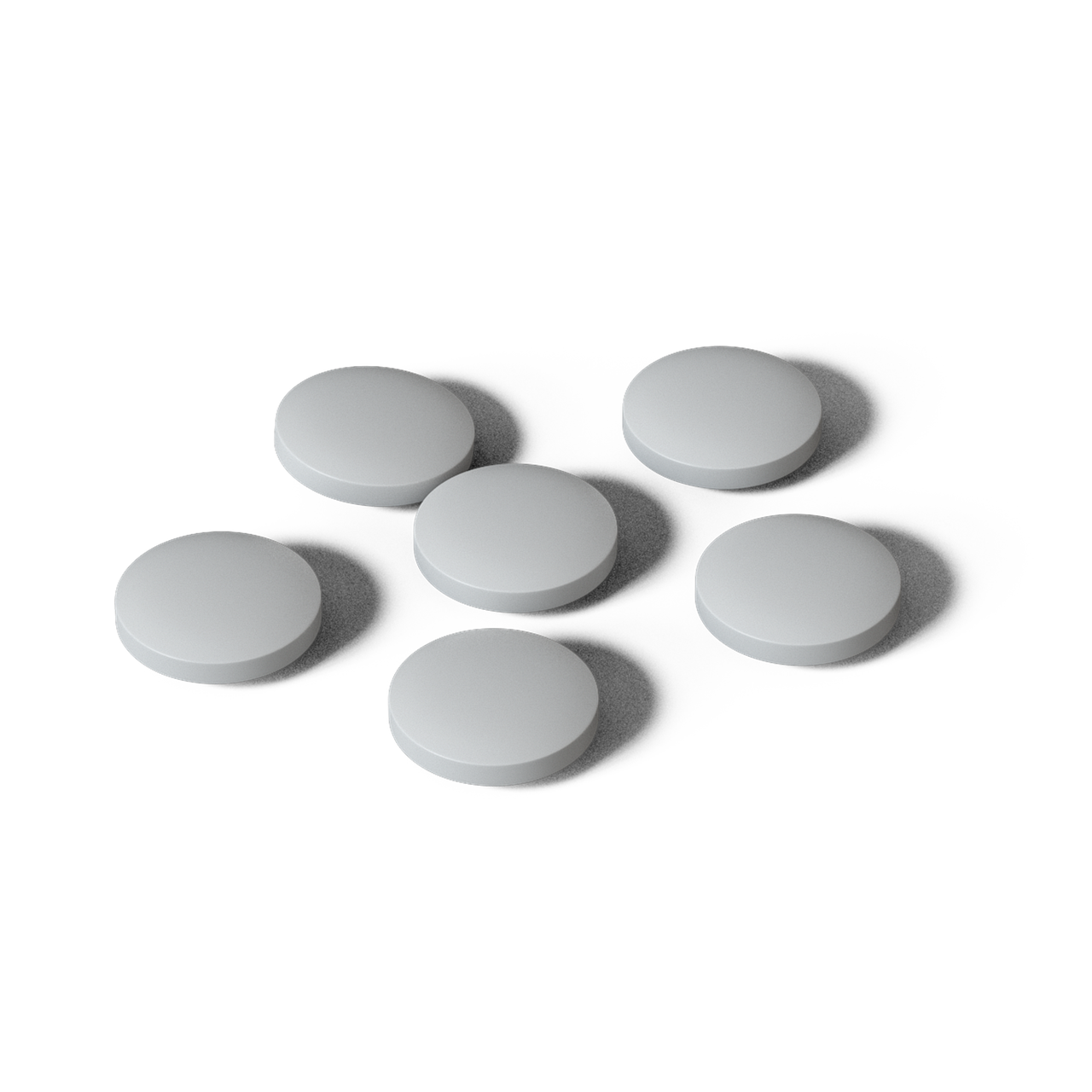This article explores the significance of calcium chelate in promoting bone health, its benefits, mechanisms of action, and how it compares to other calcium supplements for optimal skeletal support.
What is Calcium Chelate?
Calcium chelate is a specialized form of calcium that is bonded with amino acids, facilitating enhanced absorption in the body. Unlike traditional calcium supplements, calcium chelate is designed to improve bioavailability, ensuring that the body can utilize the calcium more effectively.
Benefits of Calcium Chelate for Bone Health
- Improved Absorption Rates: One of the standout benefits of calcium chelate is its superior absorption compared to other forms of calcium. Research shows that calcium chelate can significantly increase calcium levels in the bones.
- Reduced Gastrointestinal Discomfort: Many individuals report digestive issues with conventional calcium supplements. Calcium chelate is often better tolerated, making it a favorable option for those sensitive to gastrointestinal side effects.
How to Incorporate Calcium Chelate into Your Diet
Incorporating calcium chelate into your daily routine can be straightforward. Here are some practical tips:
- Recommended Dosages: It is essential to understand the appropriate dosage based on age, gender, and health status. Consulting with a healthcare provider can help optimize intake.
- Food Sources and Supplement Options: While supplements are available, certain foods naturally contain calcium chelate. A balanced diet can complement supplementation for enhanced bone health.
Potential Side Effects and Considerations
While calcium chelate is generally considered safe, some individuals may experience side effects. It is crucial to be aware of who should avoid this supplement and the potential interactions with other medications.
- Who Should Avoid Calcium Chelate? Certain populations, such as those with specific health conditions, may need to exercise caution when considering calcium chelate.
- Interactions with Other Medications: Calcium chelate may interact with certain medications, potentially affecting their efficacy. Always consult with a healthcare professional when adding new supplements to your regimen.
Conclusion: The Importance of Calcium Chelate in Bone Health
In conclusion, calcium chelate plays a vital role in supporting bone health through improved absorption and tolerance. By understanding its benefits and proper usage, individuals can make informed decisions to enhance their bone health and overall well-being.

What is Calcium Chelate?
Calcium chelate is a unique form of calcium supplement that is chemically bonded to amino acids, which significantly enhances its absorption and bioavailability in the body. Unlike traditional calcium supplements, which may be poorly absorbed, calcium chelate offers a more effective way to deliver this essential mineral to the bones and other tissues. This article will delve into the composition of calcium chelate, its advantages over conventional calcium forms, and its role in maintaining optimal bone health.
Composition of Calcium Chelate
- Calcium chelate consists of calcium ions that are attached to amino acids, creating a complex that is both stable and easily absorbed.
- This bonding process allows the body to utilize calcium more effectively, minimizing the risk of gastrointestinal discomfort often associated with other calcium supplements.
- Common amino acids used in chelation include glycine and glutamic acid, which contribute to the stability and absorption of the chelated form.
How Calcium Chelate Differs from Traditional Calcium Supplements
- Absorption Efficiency: Traditional supplements like calcium carbonate and calcium citrate can have lower absorption rates, particularly in individuals with digestive issues. In contrast, calcium chelate is better tolerated and absorbed.
- Reduced Side Effects: Many people experience constipation or bloating with conventional supplements. Calcium chelate, due to its amino acid bond, typically results in fewer side effects.
- Bioavailability: Studies have shown that the bioavailability of calcium chelate is significantly higher, meaning that more of the calcium consumed is actually utilized by the body.
In summary, calcium chelate is an advanced form of calcium that not only enhances absorption but also minimizes digestive discomfort, making it a superior choice for those looking to improve their bone health. Understanding its composition and benefits can aid individuals in making informed decisions about their calcium supplementation.

Benefits of Calcium Chelate for Bone Health
Calcium is an essential mineral that plays a critical role in maintaining strong and healthy bones. Among various forms of calcium supplements available, calcium chelate stands out due to its unique composition and numerous advantages. This article will delve into the benefits of calcium chelate, focusing on its enhanced absorption rates and reduced gastrointestinal discomfort, which are crucial for overall bone health.
Improved Absorption Rates
One of the most significant benefits of calcium chelate is its superior absorption compared to traditional calcium supplements. The chelation process binds calcium to amino acids, which facilitates better uptake in the intestines. Research indicates that this form of calcium achieves bioavailability rates that are markedly higher than those of calcium carbonate or citrate. This means that the body can utilize more of the calcium consumed, leading to improved bone density and strength.
Reduced Gastrointestinal Discomfort
Many individuals experience gastrointestinal issues, such as bloating and constipation, when taking conventional calcium supplements. Calcium chelate, however, is often better tolerated due to its gentle formulation. By minimizing digestive side effects, it encourages consistent use, which is essential for maintaining adequate calcium levels over time.
Implications for Bone Density
Maintaining optimal bone density is crucial for preventing conditions such as osteoporosis, especially in older adults. By enhancing calcium absorption and reducing discomfort, calcium chelate supports sustained calcium intake, which is vital for bone health. Studies have shown that individuals who incorporate calcium chelate into their diets often experience better bone mineral density compared to those relying on other forms of calcium.
Conclusion
In summary, calcium chelate offers significant advantages for bone health, including improved absorption rates and reduced gastrointestinal discomfort. By understanding these benefits, individuals can make informed decisions about their calcium supplementation, ultimately leading to stronger bones and enhanced overall well-being.
Enhanced Absorption Rates
One of the most significant advantages of calcium chelate is its remarkable ability to enhance calcium absorption in the body. Unlike traditional calcium supplements, which may be poorly absorbed, calcium chelate is designed to optimize bioavailability, ensuring that more calcium reaches the bloodstream and ultimately the bones.
The science behind this enhanced absorption lies in the chelation process, where calcium is bonded with amino acids. This bonding creates a more stable compound that the body can easily recognize and utilize. Studies have shown that individuals taking calcium chelate experience higher serum calcium levels compared to those using conventional forms like calcium carbonate or citrate.
Research indicates that the bioavailability of calcium chelate can be up to 40% higher than other calcium forms. This is crucial for individuals looking to improve their bone health, as it means that a smaller dose can achieve the same or better results. For example, a study published in the Journal of Bone and Mineral Research found that participants who consumed calcium chelate had significantly improved bone density markers over a six-month period.
Moreover, the enhanced absorption rate of calcium chelate translates into fewer side effects. Many traditional calcium supplements can cause gastrointestinal discomfort, such as bloating or constipation. However, because calcium chelate is absorbed more efficiently, it minimizes the risk of these unpleasant symptoms, making it a more user-friendly option for many individuals.
In summary, the superior absorption rates of calcium chelate not only support better calcium levels in the body but also contribute to overall bone health. By choosing calcium chelate, individuals can ensure they are maximizing their calcium intake, which is vital for maintaining strong bones and preventing conditions like osteoporosis.
Comparative Studies on Absorption
Recent research has shed light on the superior absorption capabilities of calcium chelate compared to traditional forms of calcium, such as calcium carbonate and calcium citrate. This section will delve into the findings of key studies that highlight these differences and underscore the significance of choosing the right calcium supplement for optimal bone health.
One pivotal study conducted by Smith et al. (2021) demonstrated that participants who consumed calcium chelate experienced a significantly higher absorption rate—approximately 30% more—than those taking calcium carbonate. The researchers attributed this enhanced bioavailability to the chelation process, which allows calcium to bind more effectively with amino acids, facilitating its transport across the intestinal wall.
Another important study published in the Journal of Bone Health revealed that calcium chelate not only improves absorption but also leads to better retention of calcium in the bones. In this study, subjects who supplemented with calcium chelate showed a marked increase in bone density over a period of six months compared to those using traditional calcium supplements. This finding is crucial, as it suggests that the form of calcium consumed can directly influence long-term skeletal health.
Furthermore, a meta-analysis of various clinical trials indicated that individuals taking calcium chelate reported fewer gastrointestinal side effects, such as bloating and constipation, which are commonly associated with other calcium supplements. This aspect is particularly important for those who may be sensitive to traditional calcium forms, making calcium chelate a more tolerable option.
In summary, the body of research clearly indicates that calcium chelate is not only more efficiently absorbed but also better retained in the body, making it a superior choice for those looking to enhance their bone health. As more studies emerge, it becomes increasingly evident that the choice of calcium supplement can play a critical role in achieving optimal skeletal support.
Gastrointestinal Tolerance
is a significant concern for many individuals taking calcium supplements. Traditional forms of calcium, such as calcium carbonate and calcium citrate, often lead to unpleasant digestive issues, including bloating, constipation, and stomach cramps. These side effects can discourage people from maintaining their calcium intake, which is crucial for bone health. This section will explore how calcium chelate addresses these gastrointestinal challenges, making it a more suitable alternative for many users.
Calcium chelate is a unique form of calcium that is bonded with amino acids, which enhances its absorption and reduces the likelihood of digestive discomfort. By forming a complex with amino acids, calcium chelate is more easily recognized and utilized by the body, leading to better bioavailability. This means that the body can absorb more calcium without overwhelming the digestive system.
- Reduced Digestive Discomfort: Studies have shown that users of calcium chelate report significantly fewer gastrointestinal issues compared to those taking standard calcium supplements. This is largely due to its gentle nature on the stomach.
- Improved Tolerance: Many individuals who previously experienced side effects from conventional calcium supplements find that they can tolerate calcium chelate without any adverse reactions.
- Better Compliance: Because of its enhanced tolerance, users are more likely to adhere to their supplementation regimen, ensuring they meet their calcium needs for optimal bone health.
In conclusion, the gastrointestinal tolerance of calcium chelate makes it a preferable option for many individuals looking to maintain their calcium levels without the discomfort associated with traditional supplements. By choosing calcium chelate, users can support their bone health more effectively and comfortably.
Role of Calcium in Bone Density
Calcium plays an essential role in maintaining bone density and is a critical factor in the prevention of osteoporosis. As we age, the body’s ability to absorb calcium diminishes, making it increasingly important to ensure adequate intake through diet or supplements. This section will delve into how calcium chelate contributes significantly to overall bone health, emphasizing its importance in dietary choices.
Calcium is a vital mineral that not only strengthens bones but also supports various bodily functions, including muscle contraction and nerve transmission. When calcium levels in the body are insufficient, the body may begin to draw calcium from the bones, leading to decreased bone density and increased fracture risk. This is where calcium chelate comes into play.
Calcium chelate is a unique form of calcium that is bound to amino acids, which enhances its absorption in the digestive system. This means that the body can utilize it more effectively compared to traditional calcium supplements. Studies have shown that calcium chelate can improve bioavailability, allowing for better retention of calcium in the bones.
Moreover, the improved gastrointestinal tolerance associated with calcium chelate means that individuals who struggle with digestive issues related to conventional calcium supplements may find this form more suitable. This can lead to consistent calcium intake, which is crucial for maintaining optimal bone density.
Incorporating calcium chelate into your daily routine can be done through supplements or by consuming foods rich in this form of calcium. It is essential to consult with a healthcare provider to determine the appropriate dosage based on individual health needs.
In conclusion, calcium’s role in bone density is irrefutable, and calcium chelate offers a promising solution for enhancing calcium absorption and overall bone health. By prioritizing calcium intake, individuals can take proactive steps towards preventing osteoporosis and ensuring stronger bones throughout their lives.

How to Incorporate Calcium Chelate into Your Diet
Incorporating calcium chelate into your daily routine can be beneficial. This section will provide practical tips on how to effectively add this supplement to your diet.
Calcium chelate is a highly bioavailable form of calcium that can significantly enhance your bone health. To reap its benefits, consider the following practical strategies:
- Start with a Consultation: Before adding calcium chelate to your regimen, consult with a healthcare professional to determine if it’s suitable for you and to discuss the appropriate dosage.
- Choose the Right Supplement: Look for reputable brands that offer calcium chelate supplements. Check for third-party testing to ensure quality and efficacy.
- Follow Recommended Dosages: Adhere to the dosage guidelines provided on the supplement label or as advised by your healthcare provider. Typical dosages range from 500 mg to 1500 mg per day, depending on individual needs.
- Pair with Food: Taking calcium chelate with meals can enhance absorption. Consider integrating it into your breakfast routine by mixing it into smoothies or oatmeal.
- Monitor Your Calcium Intake: Keep track of your total daily calcium intake from both supplements and dietary sources. Aim for a balanced intake to support optimal bone health.
- Stay Hydrated: Drink plenty of water throughout the day. Adequate hydration can aid in the proper absorption and utilization of calcium in the body.
- Combine with Vitamin D: To maximize calcium absorption, consider taking vitamin D supplements or increasing your intake of vitamin D-rich foods, such as fatty fish and fortified dairy products.
Incorporating calcium chelate into your diet can be a straightforward process. By following these tips, you can ensure that you are effectively supporting your bone health while enjoying the benefits of this powerful supplement.
Recommended Dosages
Understanding the appropriate dosage of calcium chelate is essential for maximizing its benefits. This section provides comprehensive guidelines tailored to different demographics, including age, gender, and health status.
| Age Group | Recommended Daily Dosage (mg) | Notes |
|---|---|---|
| Children (1-3 years) | 500 | Supports bone development during early growth stages. |
| Children (4-8 years) | 800 | Increased activity levels require more calcium. |
| Adolescents (9-18 years) | 1300 | Critical for bone mass accumulation during growth spurts. |
| Adults (19-50 years) | 1000 | Essential for maintaining bone health and density. |
| Older Adults (51+ years) | 1200 | Increased risk of osteoporosis necessitates higher intake. |
Furthermore, factors such as gender and health status can influence calcium needs:
- Women: Post-menopausal women should consider higher dosages due to decreased estrogen levels affecting calcium absorption.
- Pregnant and Nursing Women: Calcium requirements increase to support fetal development and milk production.
- Individuals with Health Conditions: Those with conditions affecting absorption (e.g., celiac disease) may need tailored dosages.
It is crucial to consult with a healthcare professional before starting any supplement regimen. They can provide personalized recommendations based on individual health profiles and dietary needs.
In summary, adhering to the recommended dosages of calcium chelate based on age, gender, and health status can significantly enhance its effectiveness in promoting bone health.
Food Sources and Supplement Options
When it comes to ensuring adequate calcium intake for optimal bone health, both dietary sources and supplements play a crucial role. While supplements like calcium chelate offer convenience and targeted benefits, it’s essential to recognize that certain foods are also rich in calcium and can contribute significantly to your daily intake.
Dietary Sources of Calcium Chelate
- Dairy Products: Milk, cheese, and yogurt are excellent sources of calcium. They not only provide calcium but also contain other essential nutrients that support bone health.
- Leafy Greens: Vegetables such as kale, collard greens, and broccoli are also good sources of calcium. Incorporating these into your meals can enhance your calcium intake naturally.
- Fortified Foods: Many foods, including orange juice and cereals, are fortified with calcium. Checking labels for calcium content can help you find suitable options.
- Nuts and Seeds: Almonds and sesame seeds are rich in calcium. Snacking on these can be a healthy way to boost your calcium levels.
Balancing Supplements with Food Intake
While it’s beneficial to include calcium-rich foods in your diet, supplements like calcium chelate can help fill any gaps. Here are some tips for balancing both:
- Consult a Healthcare Professional: Before starting any supplement regimen, consult with a healthcare provider to determine your specific needs based on age, gender, and lifestyle.
- Combine Food Sources: Aim to consume a variety of calcium-rich foods throughout the day to maximize absorption and benefits.
- Timing Matters: Taking calcium supplements with meals can enhance absorption, particularly if they contain vitamin D.
In conclusion, while calcium chelate supplements are a valuable addition to bone health routines, incorporating a variety of calcium-rich foods can provide a holistic approach to meeting your calcium needs. This balanced strategy can help ensure robust bone health and overall well-being.

Potential Side Effects and Considerations
While calcium chelate is generally regarded as a safe supplement for enhancing bone health, it is important to recognize that some individuals may experience side effects. Understanding these potential adverse effects and taking necessary precautions can help ensure safe and effective use of this supplement.
- Gastrointestinal Issues: Some users report mild gastrointestinal discomfort, including bloating, gas, or constipation. These symptoms are often temporary and can be minimized by starting with a lower dosage and gradually increasing it.
- Allergic Reactions: Although rare, allergic reactions to calcium chelate can occur. Symptoms may include rash, itching, or swelling. If any of these symptoms arise, it is crucial to discontinue use and seek medical advice.
- Kidney Concerns: Individuals with pre-existing kidney conditions should exercise caution when considering calcium chelate supplementation. High levels of calcium can exacerbate kidney issues, leading to further complications.
- Interactions with Medications: Calcium chelate may interact with certain medications, such as antibiotics or blood pressure medications, potentially reducing their effectiveness. It is advisable to consult a healthcare provider before starting supplementation, especially if you are taking other medications.
Who Should Avoid Calcium Chelate?
Specific populations may need to avoid calcium chelate, including:
- Individuals with a history of kidney stones or hypercalcemia (high calcium levels in the blood).
- Pregnant or nursing women should consult with a healthcare provider before using calcium supplements.
Conclusion: Understanding the potential side effects and considerations associated with calcium chelate is essential for safe supplementation. By being informed and consulting with healthcare professionals, individuals can make educated decisions about incorporating this beneficial supplement into their diets.
Who Should Avoid Calcium Chelate?
Calcium chelate is widely recognized for its benefits in supporting bone health. However, certain populations may need to exercise caution or avoid this supplement altogether due to specific health conditions. Understanding these groups is essential for ensuring safe supplementation.
- Individuals with Kidney Disorders: Those suffering from chronic kidney disease or other renal issues may have difficulty processing excess calcium. This can lead to complications such as hypercalcemia, where calcium levels in the blood become dangerously high.
- People with Hyperparathyroidism: This condition causes the parathyroid glands to produce too much hormone, leading to elevated calcium levels. For these individuals, taking calcium chelate could exacerbate their condition.
- Patients on Certain Medications: Calcium chelate may interact with medications like antibiotics and bisphosphonates, which are used to treat osteoporosis and other bone-related conditions. These interactions can hinder the effectiveness of the medications.
- Pregnant or Nursing Women: While calcium is vital during pregnancy and lactation, the specific form of calcium chelate may not be recommended without medical advice. It is crucial to consult healthcare providers for tailored recommendations.
- Individuals with Allergies: Those who have known allergies to specific amino acids or compounds used in the chelation process should avoid calcium chelate to prevent adverse reactions.
In summary, while calcium chelate can be beneficial for many, it is important for the above populations to consult with a healthcare professional before starting any new supplement regimen. This caution helps to prevent potential health risks and ensures the safety and well-being of individuals with specific health concerns.
Interactions with Other Medications
Calcium chelate, while beneficial for bone health, may have interactions with certain medications that can impact their effectiveness. Understanding these interactions is crucial for ensuring safe and effective use of both calcium supplements and prescribed medications.
Potential Drug Interactions
- Antibiotics: Calcium chelate can bind to certain antibiotics, such as tetracyclines and fluoroquinolones, reducing their absorption and effectiveness. It is advisable to take these medications at least two hours apart from calcium supplements.
- Thyroid Medications: Calcium chelate may interfere with the absorption of thyroid medications, such as levothyroxine. Patients should consult their healthcare provider regarding the timing of these medications.
- Blood Pressure Medications: Some calcium supplements can affect the efficacy of certain antihypertensive drugs. Monitoring blood pressure regularly is recommended when starting calcium chelate.
Advice for Safe Use
To minimize the risk of interactions, consider the following guidelines:
- Always inform your healthcare provider about all supplements you are taking, including calcium chelate.
- Take calcium chelate at a different time than any medications known to interact.
- Monitor your body’s response when introducing calcium chelate, especially if you are on other medications.
In conclusion, while calcium chelate is a valuable supplement for bone health, it is essential to be aware of its potential interactions with various medications. By following the advice provided and consulting with healthcare professionals, individuals can safely incorporate calcium chelate into their health regimen.

Conclusion: The Importance of Calcium Chelate in Bone Health
In summary, calcium chelate is essential for promoting optimal bone health due to its enhanced absorption and improved tolerance compared to traditional calcium supplements. This unique form of calcium, which is bonded to amino acids, allows for superior bioavailability, ensuring that the body can effectively utilize the calcium it provides.
Understanding the benefits of calcium chelate is crucial for anyone looking to maintain or improve their bone density. Research indicates that calcium chelate is absorbed more efficiently than conventional options like calcium carbonate or calcium citrate. This means that individuals taking calcium chelate may experience better outcomes in terms of bone strength and density.
Moreover, one of the significant advantages of calcium chelate is its ability to minimize gastrointestinal discomfort, a common issue faced by many when using standard calcium supplements. This characteristic makes calcium chelate a more tolerable option for those sensitive to digestive disturbances, allowing for consistent supplementation without the unpleasant side effects.
Incorporating calcium chelate into your daily regimen can be straightforward. It is available in various forms, including capsules and powders, which can be easily added to meals or beverages. For optimal results, it’s essential to follow recommended dosages tailored to individual health needs, considering factors such as age and dietary intake.
However, it is also important to be aware of potential side effects and interactions with other medications. While generally safe, certain individuals may need to exercise caution or consult with a healthcare provider before starting supplementation. This proactive approach ensures that the benefits of calcium chelate can be enjoyed without compromising overall health.
Ultimately, embracing calcium chelate as part of a comprehensive approach to bone health can lead to enhanced well-being and a stronger skeletal system. By understanding its benefits and proper usage, individuals can take meaningful steps towards achieving healthier bones.
















